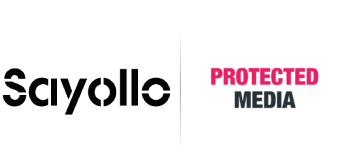The World Federation of Advertisers estimate that, within the next decade, fraudulent internet traffic schemes will become the second-largest market for criminal organisations, behind cocaine and opiate trafficking. In fact, a major Ukrainian crime ring is rumoured to have switched from bank phishing scams to online ad fraud, given the fact that it is so lucrative – and others are likely to follow.
Fraud touches everyone in the supply chain – technology vendors, agencies, exchanges, and advertisers. In the past, as long as the campaign was under budget and appeared to work, everyone was happy. Due to a lack of awareness, there was no need to dig deeper and inspect where the traffic was coming from.
But now that the ad fraud problem is on everyone’s agenda, burning a higher and higher percentage of advertisers’ budgets, there is an awareness in the industry that extra measures need to be taken to clean up traffic and bring back trust in online advertising.
Everyone can agree that there’s a problem, but with all the players and complexity of the industry, it’s not so easy to find a solution.
Certifications are a good start
There are currently at least three separate organisations promoting their own anti-fraud certification processes, including the Media Rating Council, Trustworthy Accountability Group, and The Joint Industry Committee for Web Standards (JICWEBS) in the UK and Ireland. These initiatives raise awareness, but won’t solve the problem.
Standards can create a false sense of security. The online fraud industry is still evolving and not enough is known to adequately define a standard that can stop it. Instead, the existing standards focus on governance and require certified companies to add several layers of bureaucracy that can actually siphon funds away from research that is needed to improve fraud detection.
Rather than relying only on certifications, independent third-party labs should continuously evaluate solutions by doing technological bake-offs. A vendor’s ability to clean-up traffic and provide a better return on advertisers’ budgets is a better method of evaluating a solution’s effectiveness than relying on certifications.
Complex problems require complex solutions
One of the best ways to prevent fraud is to have a better understanding of criminal behaviour. This can be achieved by having botnet experts perform an in-depth analysis of threats, which can include going undercover and interrogating suspicious traffic sources.
Botnets, a network of private computers infected with malicious software, have become more powerful, taking online ad fraud to a whole new level. For example, since mid-September 2014, the Redirector.Paco Trojan managed to infect more than 900,000 IPs worldwide, mainly from India, Malaysia, Greece, USA, Italy, Pakistan, Brazil, and Algeria to generate false online ad traffic.
In addition to improved detection, advanced solutions provide detailed information enabling agencies to work side-by-side with publishers to weed out bad sources of ad traffic. With objective measurements available from third parties, advertisers can demand that publishers refund them for ads that are not delivered properly.
By evaluating the ability of anti-fraud solutions to block bad traffic, advertisers can select the solution that will protect their ad budgets the best and can avoid losing money to fraudulent traffic. Focusing only on certifications will continue to give the criminals the upper hand. By investing in more sophisticated technologies, botnets can be discovered and their influence minimised. Everyone will see an uptick in ad performance and a there can be a renewed trust in online advertising.
See original article: https://www.exchangewire.com/blog/2016/10/26/protected-media-going-undercover-to-bust-ad-fraud/




